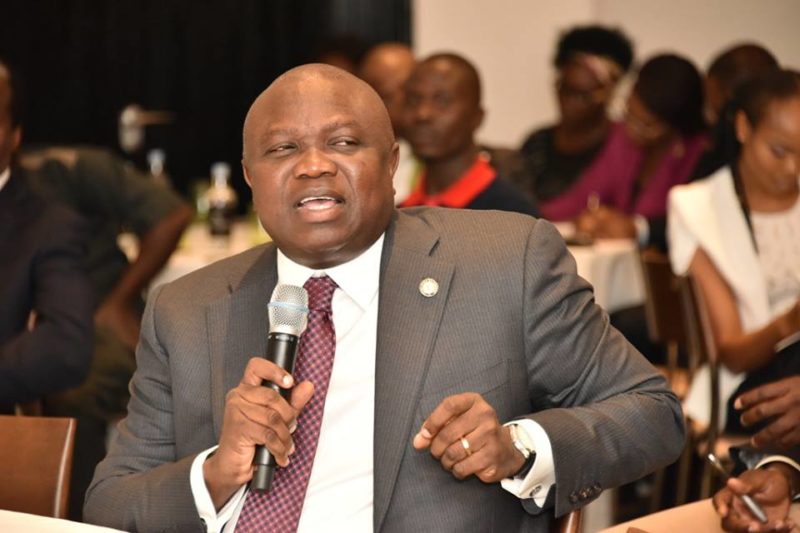The Lagos State House of Assembly on Tuesday, January 16, 2018 said that religious organisations and cemeteries would only be granted exemption in the. proposed harmonised bill on Land Use Charge if they do not engage in commercial activities.

Mr Yinka Ogundimu, the Chairman of the Assembly’s eight-man Ad hoc Committee on Finance, gave the insight at a Public Hearing on the Land Use Charge (Repeal and Re-enactment) Law 2017.
Ogundimu said the 27-section bill seeks to harmonise Land Rates Law, Neighbourhood Improvement Charge Law and Tenement Rates Law, and will be beneficial to property owners in the state.
According to him, the bill will not increase the tax burden of property owners as being speculated, but will, rather, checkmate multiple taxation.
“Nothing has affected religious bodies if they have not gone out of the way from being religious body to being religious cum commercial body.
“But if any religious body starts going commercial with any of their religious activities, then such religious body has to really be under the tax regime.
“If it is a religion, it must purely be religion, but if you have a name of religious outfit and at the same time are running a school or event centre or others, such property will not be exempted,’’ he said.
Ogundimu said the harmonised bill would prevent situations where the local government would be coming with tenement rates and the state government coming with another rate still on the same property.
Earlier, the Speaker of the House, Mr Mudashiru Obasa, represented by his deputy, Mr Wasiu Eshinlokun-Sanni, said that the bill would have human face.
While giving the overview of the bill, the Majority Leader, Mr Sanai Agunbiade, said that the proposed law differs from the old payment charge, as the new charges would be based on market value.
Stakeholders commended the state government for the executive bill, but cautioned against the tendency to overburden the owners and occupiers of landed property.
Pastor Barnabas Otoibhi, representing the Pentecostal Fellowship of Nigeria (PFN), stated that the proposed law was silent about the ground rent paid to the state.
He said that it should be captured in the bill.
Speaking on section seven of the bill – “Property Excepted from Payment of Land Use Charge” – Alhaji Tajudeen Quadri, Chairman, Lagos State Community Development Advisory Council, urged the House to include community halls among them.
Quadri said that some of the community halls were constructed through self help and in many cases were for recreational purposes.
Also speaking, Mr Thompson Akpabio, a representative of the Nigeria Employers’ Consultative Association (NECA), the umbrella body of employers in the Organised Private Sector, cautioned against over burdening of property owners.
Akpabio said that the bill failed to address how terms like land value rate and building value rate were defined and could be subject to any form of interpretation.
Mr Akinbajo Adekunle from Christ Against Drug Abuse Ministry (CADA) — an NGO. — said basing the rate on the value of property would increase the pain of payment on the property owner.
“I think the purpose of the law is not to increase the pains of property owners, but to make it comfortable for them,’’ he said.
The Chairman of the Nigerian Institution of Estate Surveyors and Valuers (NIESV), Mr Olurogba Orimolade, who made a case for owners or occupiers that were retirees, called for more engagement with the institution to increase its revenues.
“We have even realised that the Lagos State Government is losing money because it uses that same formular, for instance, it uses to value a petrol station to value a detached house,” he said.
The News Agency of Nigeria (NAN) reports that the bill, if passed into law, will end all other rates on land except the Land Use Charge.
The bill reads in part: “As from the commencement of the law, the annual amount of the Land Use Charge payable for any Property shall be arrived at by multiplying the market value of the property by the applicable relief rate and annual charge rate, using the prescribed formulae.
“The land value and building value rates constituting the market value of the property shall be reviewed at least once every five years on the basis of information available to professional valuers, and may vary from area to area.’’
